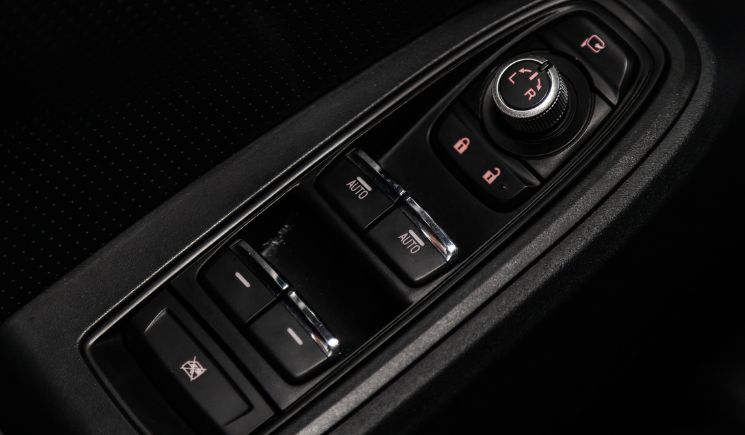If the door lock button on your Nissan Juke has stopped working, it can be an incredibly frustrating issue.
Not being able to lock or unlock your vehicle with the push of a button is a major inconvenience and security concern.
In this detailed guide, we’ll explore the possible causes behind a faulty door lock button and provide steps to get it fixed.
Potential Causes for a Non-Working Door Lock Button
There are several potential reasons why your Nissan Juke’s door lock button may have stopped functioning correctly.
Let’s explore some of the most common issues:
Faulty Door Lock Switch
- The door lock switch itself could be the source of the problem.
- Over time, these switches can wear out, develop internal issues, or become damaged due to moisture or debris intrusion.
- A faulty switch will fail to send the proper signal to the BCM by preventing the door locks from functioning.
Wiring Issues
- The wiring that connects the door lock switch to the BCM or the actuator could be damaged, corroded, or disconnected.
- This can take place due to various reasons, such as age or rodent damage to the wiring harness.
Body Control Module (BCM) Failure
- The BCM is the brain of the door lock system by interpreting the signals from the switch and activating the actuator.
- If the BCM develops an internal fault or loses its programming, it may fail to respond to the door lock button’s signal.
Actuator Malfunction
- The function of the door lock actuator is to physically lock and unlock the doors.
- If the actuator itself has failed due to mechanical issues, electrical problems, or damage, it won’t respond to commands from the BCM, even if the switch and wiring are functioning correctly.
Power Supply Issues
- The door lock system relies on a stable power supply from the vehicle’s electrical system.
- If there are issues with the battery, alternator, or related wiring, it can prevent the door locks from operating correctly.
Troubleshooting Steps
Now that we’ve identified the potential causes, let’s dive into the troubleshooting process:
Inspect the Door Lock Switch
- Start by inspecting the door lock switch for any visible signs of damage, such as moisture intrusion, or debris buildup.
- You can also try pressing the switch to see if it feels loose or unresponsive.
Check the Wiring
- Locate the wiring harness that connects the door lock switch to the BCM and the actuator.
- Inspect it for any signs of damage, such as cuts, fraying, or corrosion.
- Ensure that all connections are secure and free from debris.
Test the Door Lock Switch
- Use an instrument such as a multimeter to test the door lock switch to determine if it’s functioning correctly.
- Consult your vehicle’s repair manual or an automotive electrician for the specific testing procedure.
Diagnose the Body Control Module (BCM)
- If the switch and wiring appears to be in the perfect condition, the issue may lie with the BCM.
- Automotive technicians have specialized diagnostic tools that can communicate with the BCM and identify any faults or programming issues.
Inspect the Actuator
- If the switch, wiring, and BCM have been ruled out, the problem may be with the door lock actuator itself.
- This typically requires removing interior trim panels to access and inspect the actuator for any mechanical issues or damage.
Check the Power Supply
- Use a multimeter to calculate the battery voltage and ensure that the door lock system is receiving a stable power supply.
- Also, inspect the related wiring and connections for any issues.
Frequently Asked Questions About Nissan Juke Door Lock Button Not Working
Q: How does the door lock system works on the Nissan Juke?
A: The door lock button sends a signal to the BCM, which then activates the door lock actuator to engage or disengage the lock mechanism via rods/cables.
Q: What role does the Body Control Module (BCM) plays?
A: The BCM is the control unit that interprets signals from components like the door lock switch and tells the actuator when to lock/unlock.

